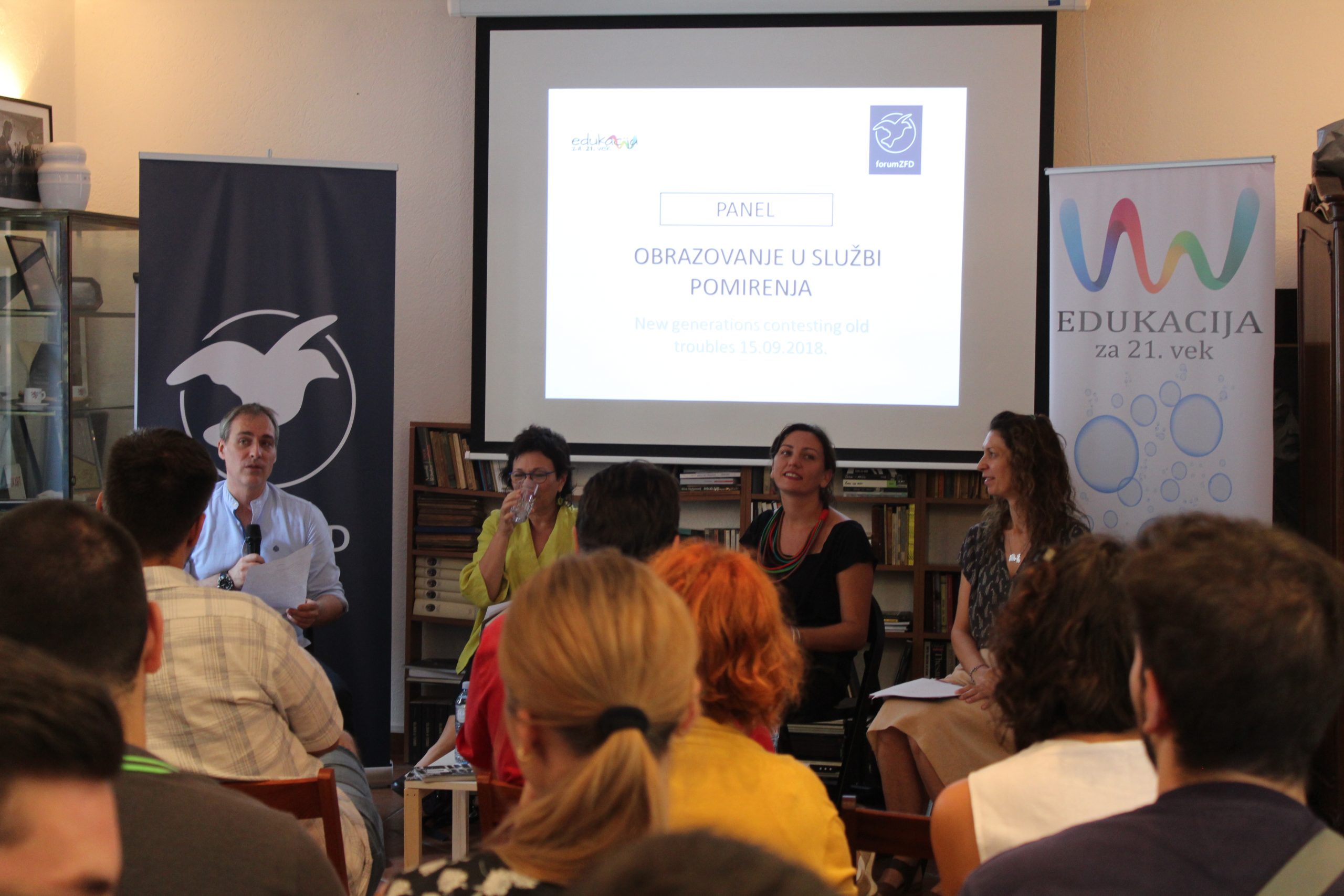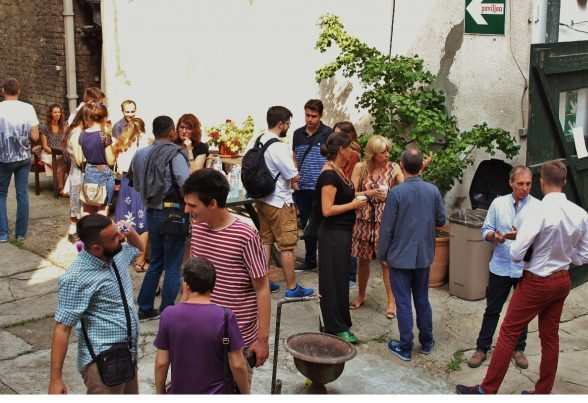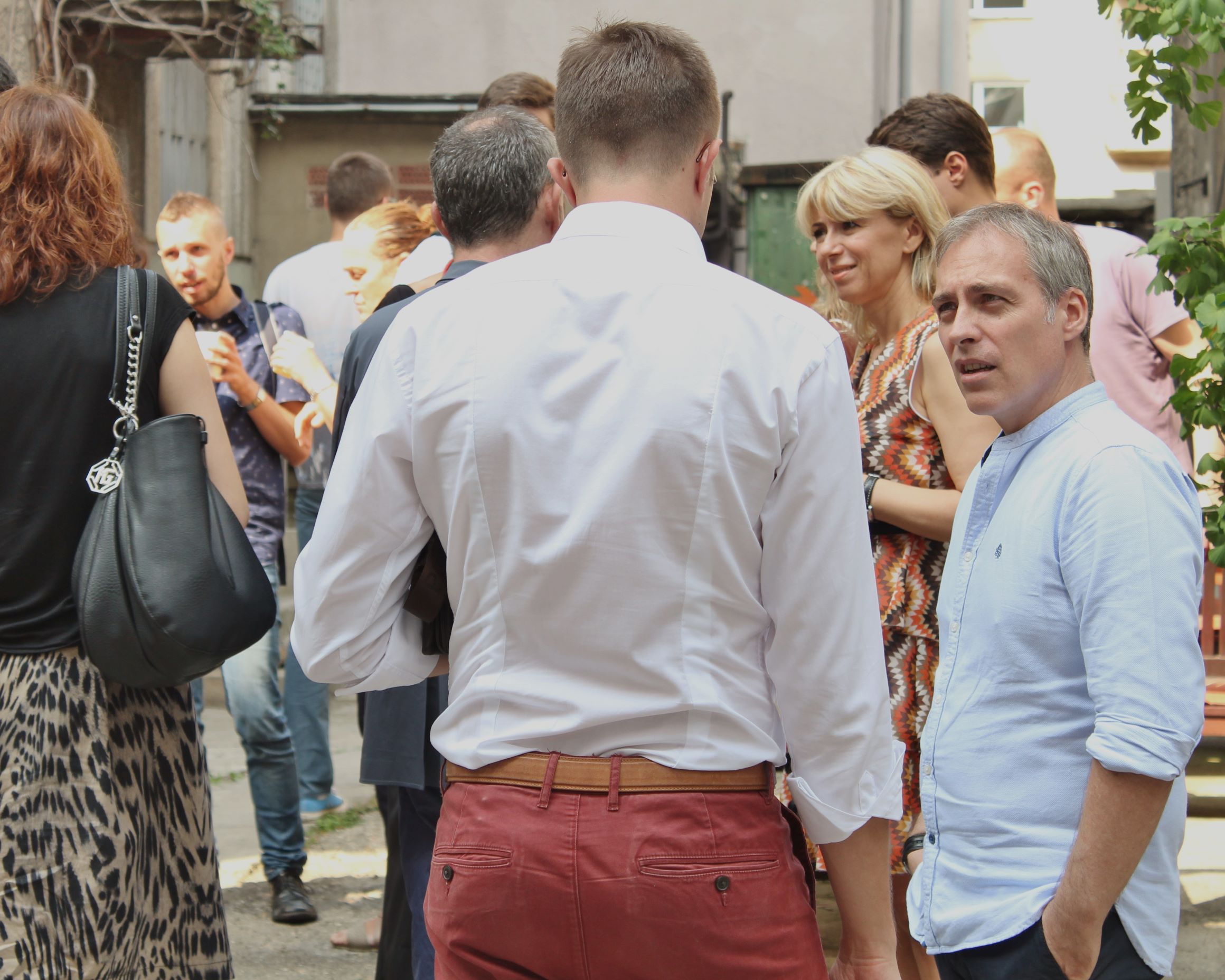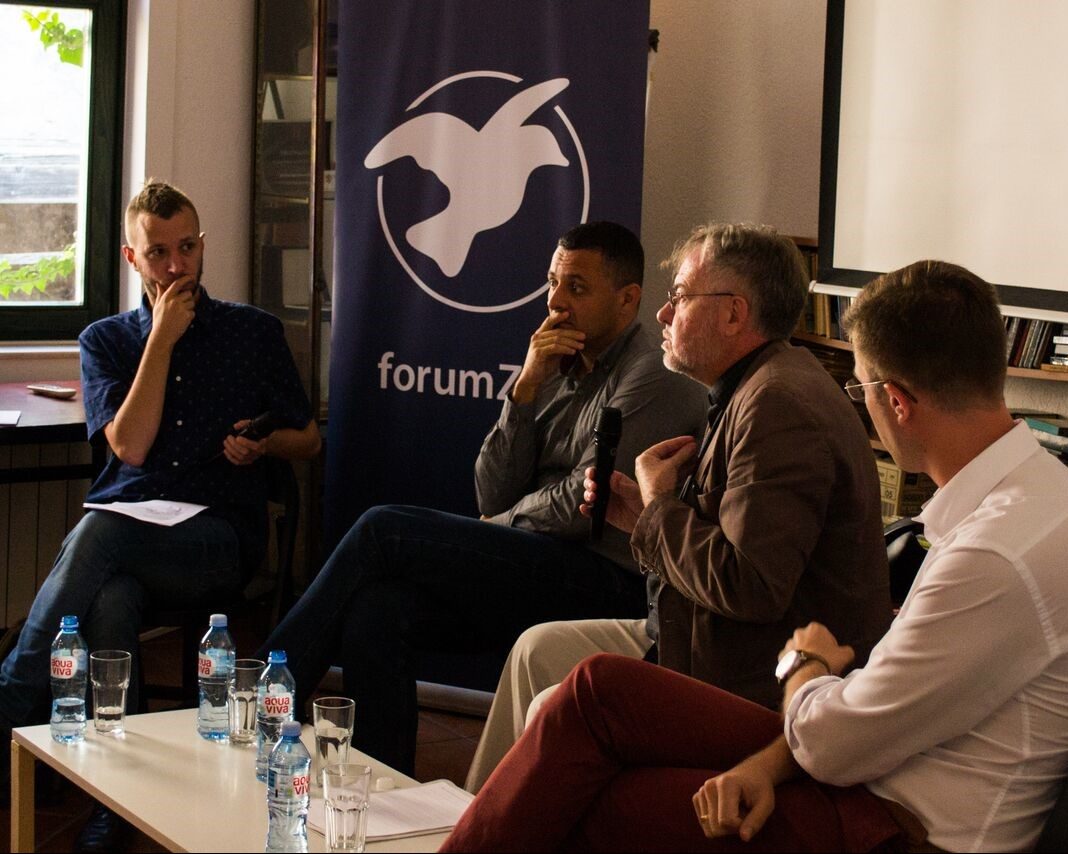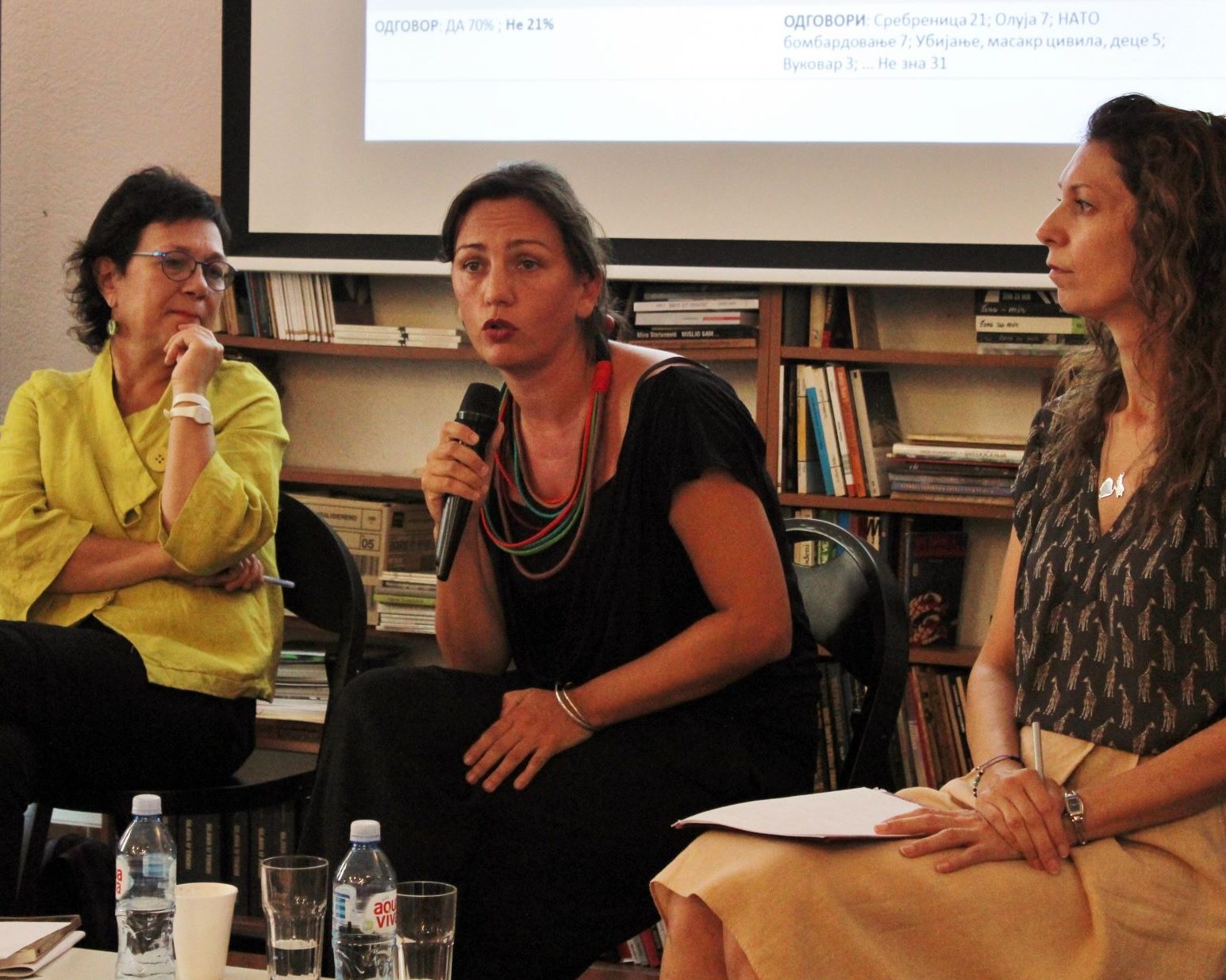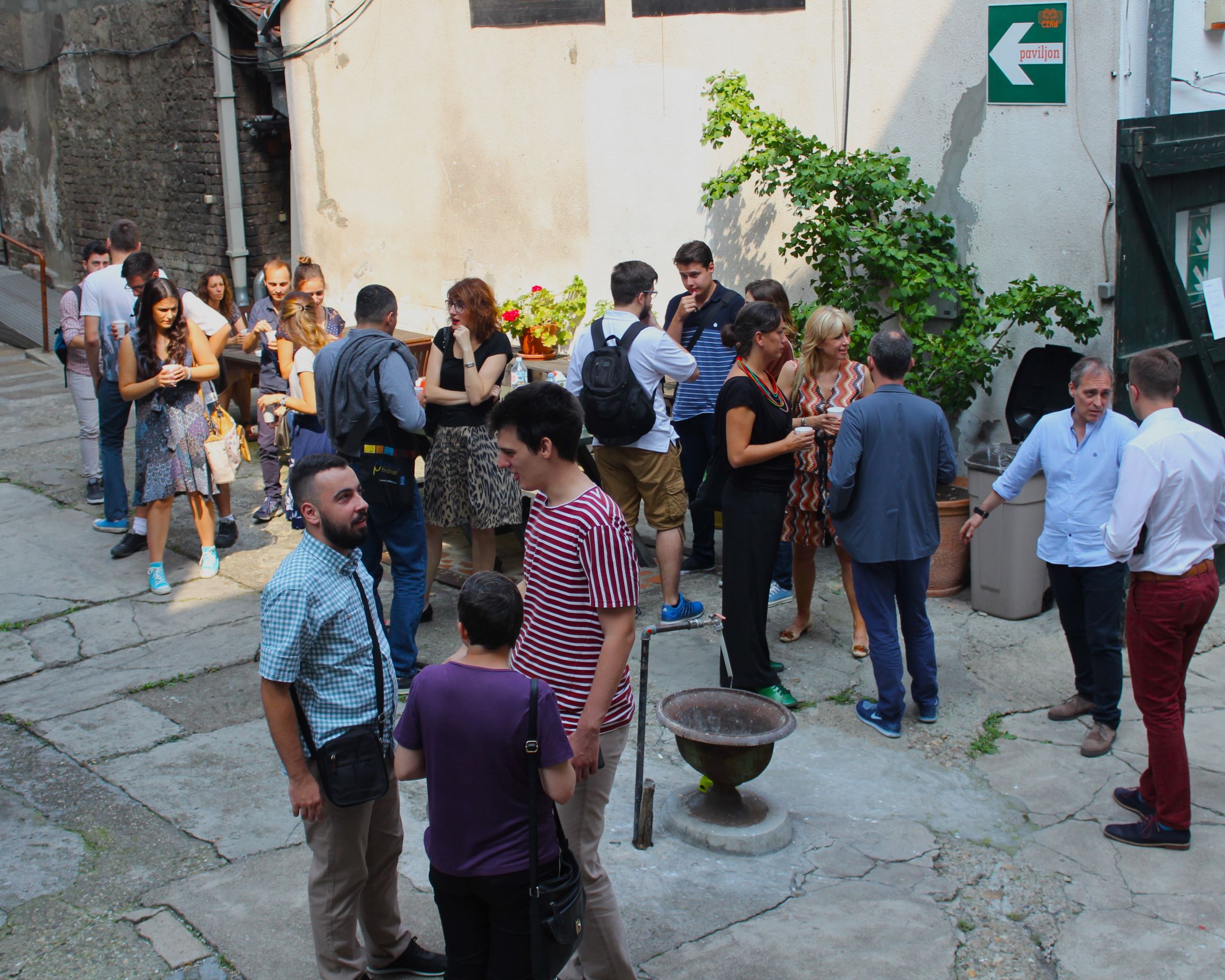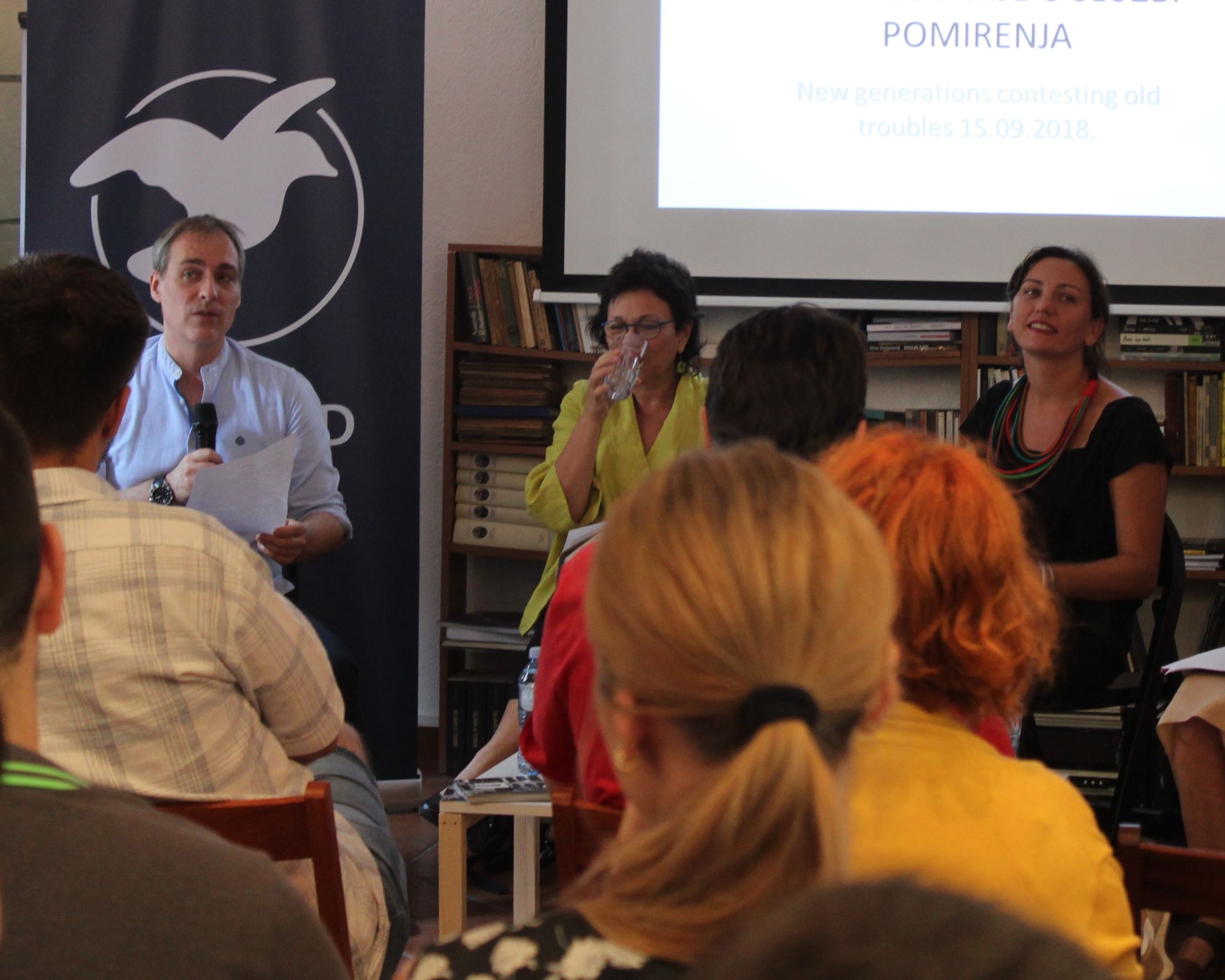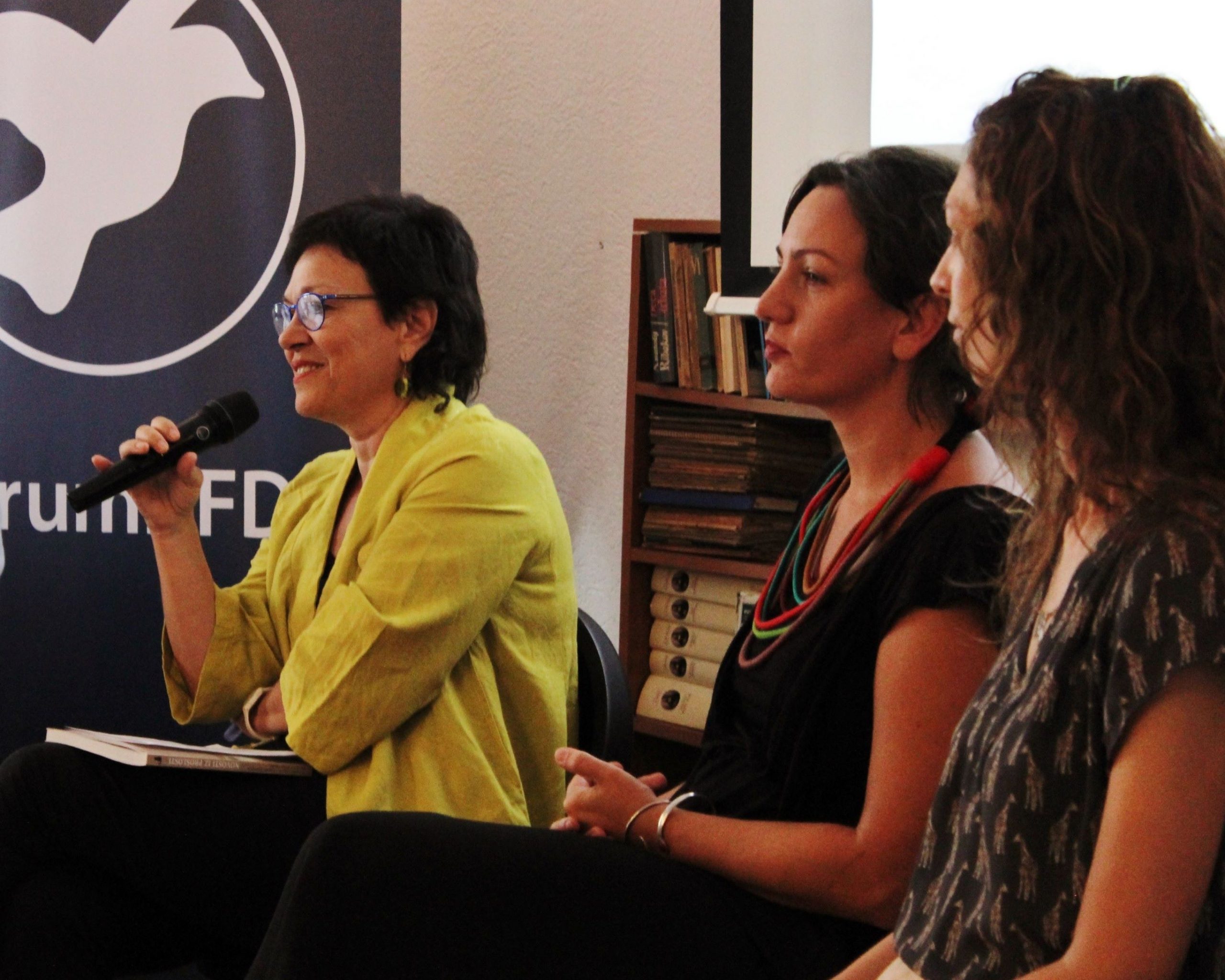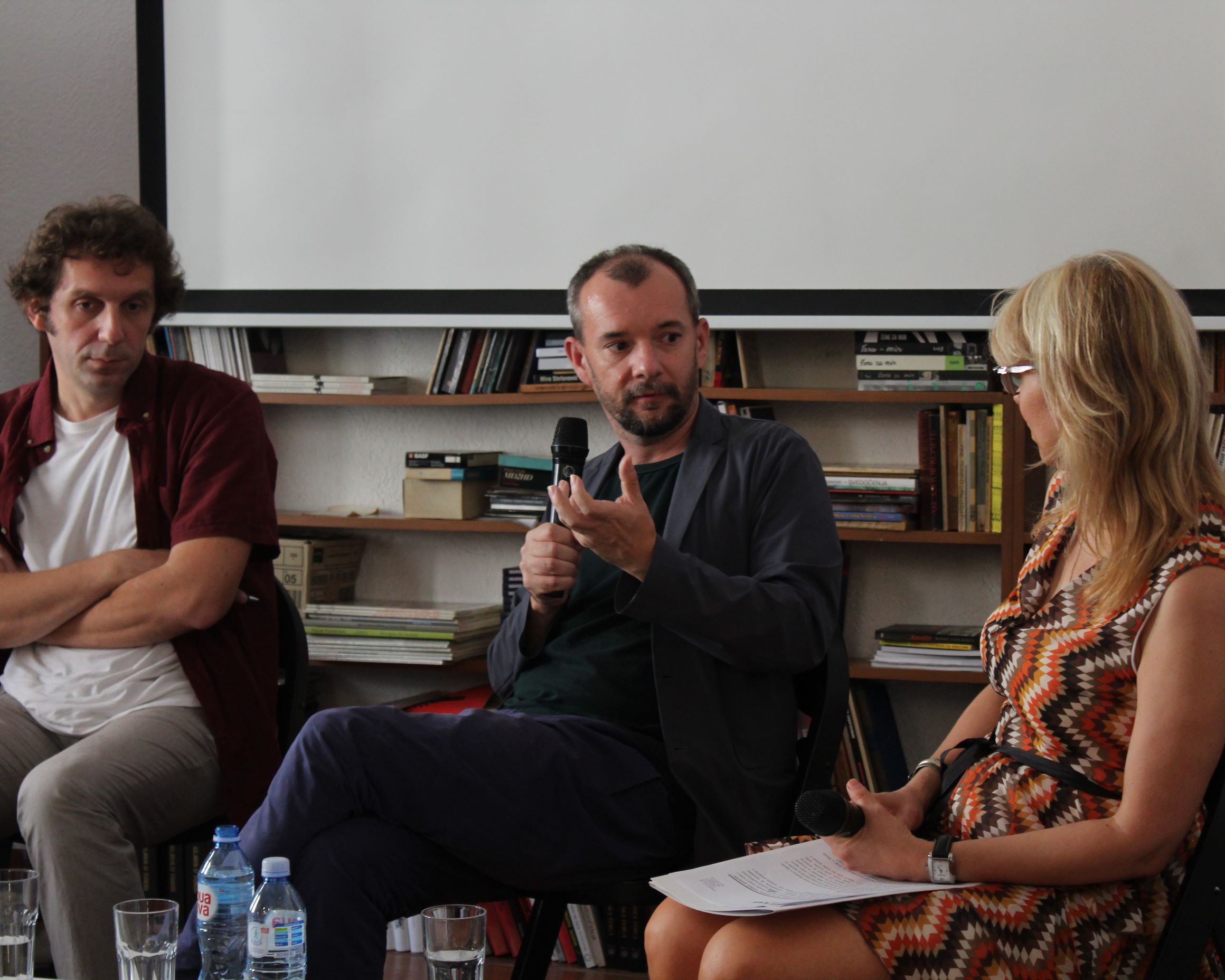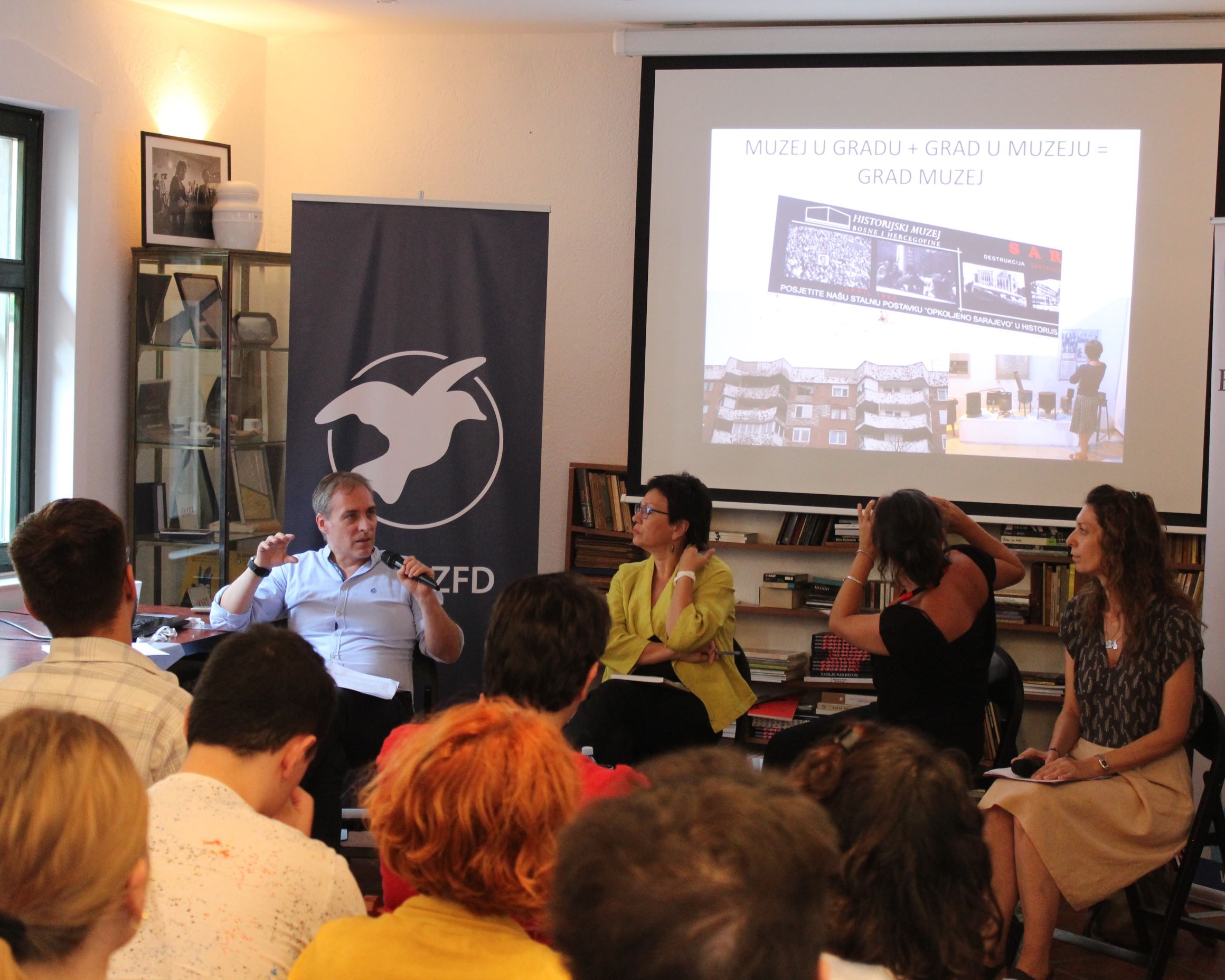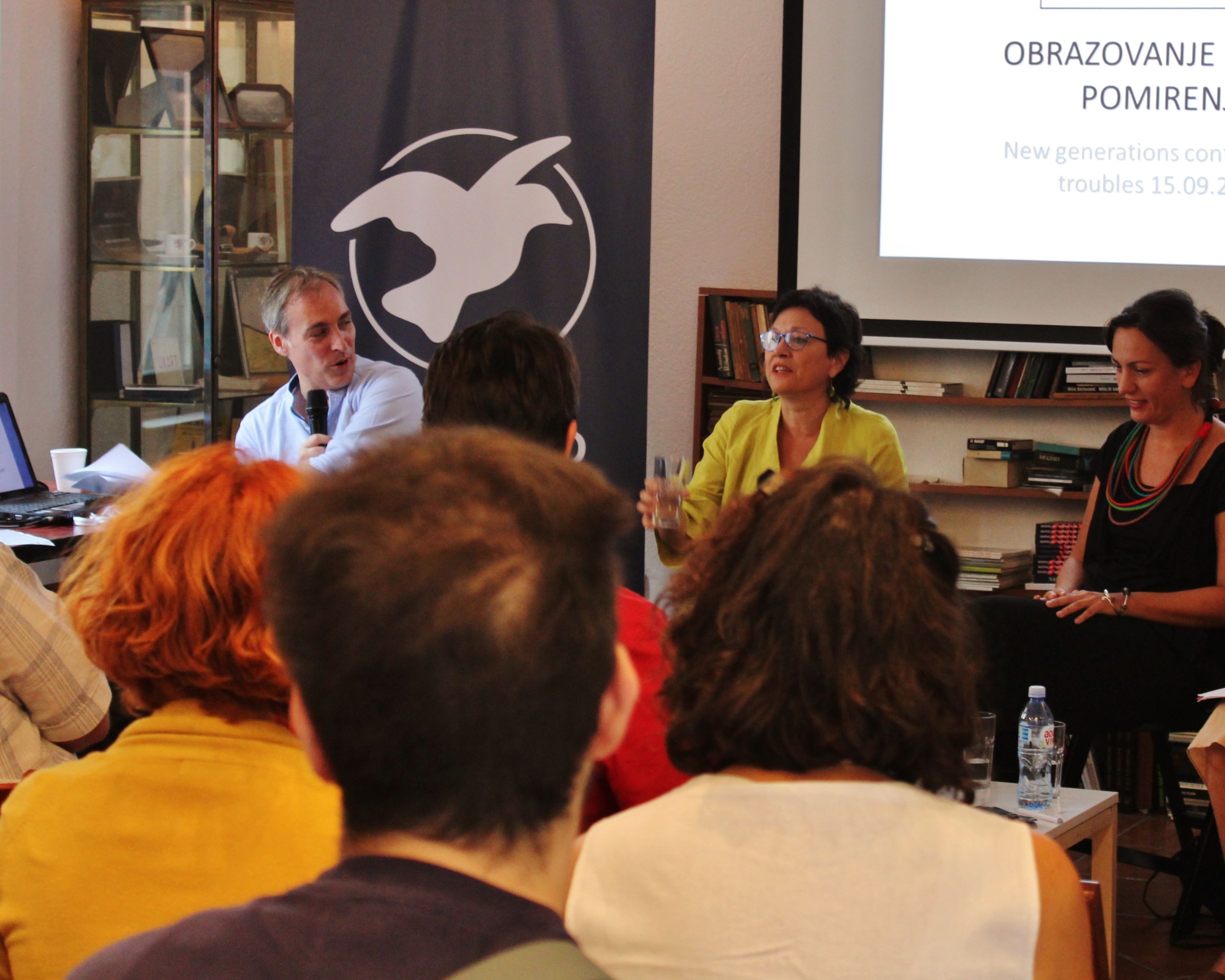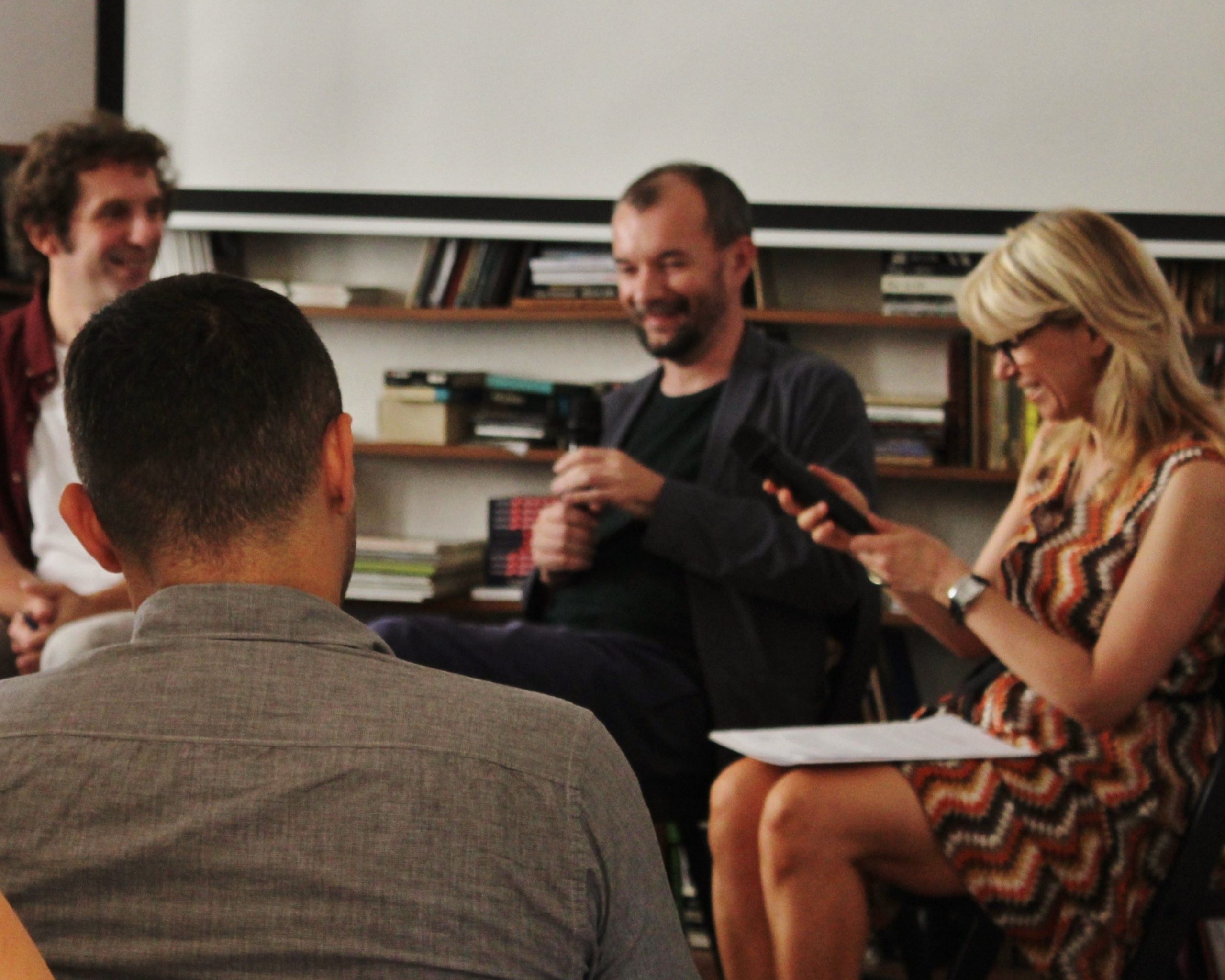NEW GENERATIONS CONTESTING OLD TROUBLES
As part of the conference "New Generations Facing Old Challenges," held on September 15, 2017, eminent experts from various fields of social and human sciences from the region participated. The conference was divided into three panels and a workshop, and the moderators ensured dynamic and productive discussions.
Engaging with and Disengaging from Identity
The first panel opened a discussion on issues of identity in post-conflict societies in the Balkans. The speakers analyzed how identity is formed and changed through different social, political, and cultural contexts.
Speakers:
Drago Pilsel (Croatia)
Srdjan Šušnica (BIH)
Stefan Surlić (Serbia)
Moderator:
Srđan Hercigonja (FORUM ZFD)
The second panel dealt with cultural heritage and its multiple roles in society.
Cultural Heritage as an Educational Goal, a Means of Manipulation, and an Object of Destruction?
Speakers:
Milan Popadić (Faculty of Philosophy, Belgrade, Serbia)
Maroje Mrduljaš (Faculty of Architecture, Zagreb, Croatia)
Mina Vidaković (SENSE Croatia)
Moderator:
Lidija Županić Šuica (Education for the 21st Century)
The third panel explored the role of education in the reconciliation process in post-conflict societies. The panelists agreed that education is key to long-term reconciliation and stability in the region.
Education as a tool for Reconciliation
Speakers:
Dubravka Stojanović (Faculty of Philosophy, Belgrade)
Јelena Krstić (Fund for Humanitarian Law, Belgrade)
Elma Hašinbegović (BIH)
Moderator:
Marko Šuica (Faculty of Philosophy)
The workshops were a dynamic conclusion to the conference, allowing participants to actively engage in discussions and exchange opinions. The workshop leaders, Dubravka Stojanović, Јelena Krstić, Elma Hašinbegović, and Marko Šuica, organized screenings of excerpts from the films Memory Walks and Sense: Erasing History and Memory. Following the screenings, a discussion with students on the topic "How to Achieve Reconciliation from the Perspective of Post-Conflict Generations?" ensued. Participants shared their views and suggestions for improving the reconciliation process.

